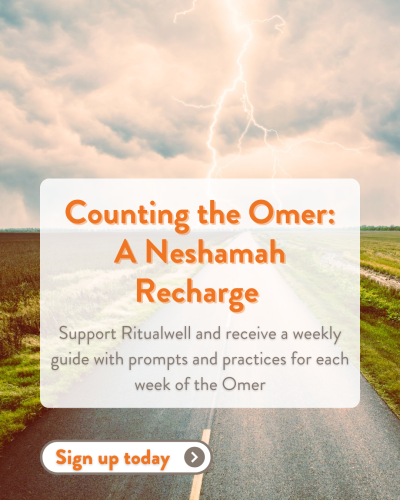In the opening scene of “Fiddler on the Roof,” a villager approaches the rabbi with a question: “Is there a blessing for … the tzar?” The joke presumes the audience knows that Jewish tradition provides prescribed blessings for… well… many, many things. There are blessings for waking up, for studying Torah, for seeing a rainbow and for going to the bathroom. In fact, the Talmud teaches that it is forbidden to “derive benefit from this world without first reciting a blessing.” To fail to bless is tantamount to stealing. Knowing the blessing you ought to say upon seeing a crowd of people, washing your hands or—unlikely though it may be—meeting a king, prepares you to acknowledge that “the world, and everything in it, is G-d’s” (Psalms 24:1).
Since I spend much of my time involved with intentional interfaith dialogue, I felt there ought to be a specific blessing for this type of encounter. Not finding one in the tradition, I decided to try to search for a blessing that already existed and recycle it for this purpose. My thoughts went first to the blessings over food. When I first learned mealtime blessings, I found the system intricate, complex and, to be honest, unnecessarily arcane. The basic blessing for meals covers those that include bread (presumably most meals), but other blessings exist, specific to fruit, vegetables, wine and grains other than wheat. Later, I came to appreciate that the meticulous effort to be precise about what is being blessed forces you to pay close attention to what is happening. There is merit in that! As the Qur’an(80:24) puts it, “Human, look at your food!” Almost twenty years ago, a rabbinic colleague who grew up Orthodox experienced his first Buddhist meditation retreat. Upon coming out of the silence, he exclaimed, “Now, I finally get it! All those blessings are simply a mindfulness practice.”
For a full meal, a lengthy series of blessings expresses our gratitude to the One who “nourishes the entire world with His goodness, with grace, with benevolence and with compassion.” Certain foods have their own abridged version of that grace. For example, one can say “On the Land and its fruits” after eating the special foods associated with the Land of Israel in the Torah: grapes, figs, pomegranates, olives and dates. An all-purpose blessing to be used before eating or drinking something that does not fall into the usual categories praises God, “by Whose word all things came to be.” I love the story of a rabbi who would pour some schnaps (a grain beverage) before a particularly difficult pastoral encounter. Saying that blessing, he would be reminded that this, too, came to be “through His word.” At the conclusion of a simple snack with no particular blessing attached, we praise God for “creating many living beings and what they lack.” Borei nefashot rabbot v’hesronam. That was it! A blessing for meeting across differences! Gratitude for our missing parts!
At the heart of interfaith engagement is our need for one another. When we encounter our “others,” we learn what we could not have known if we had stayed isolated. We accomplish what is impossible without collaboration, grow in ways we could not grow by ourselves. When we enter such an encounter, we can bless what we each lack, for it is that which brings us together.
Blessed is God who creates us varied and many, needing one another.
Blessed are our traditions, varied and many, requiring each other.
Blessed is our time together.
May it provide nourishment for us and for our world.













